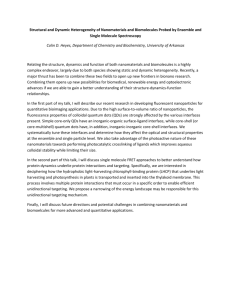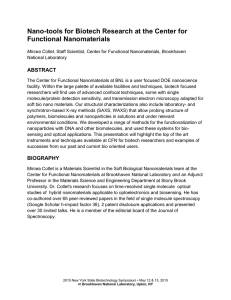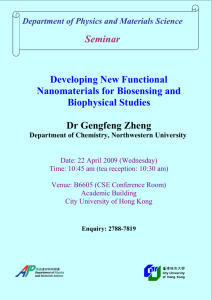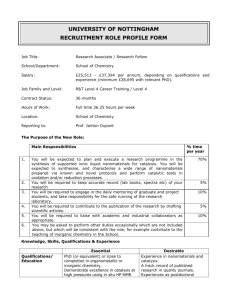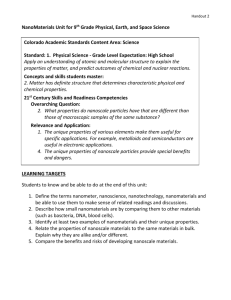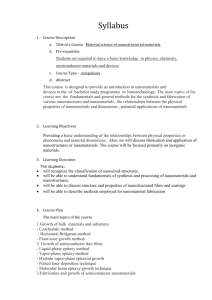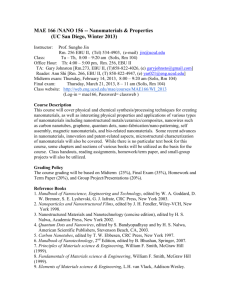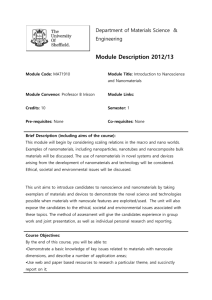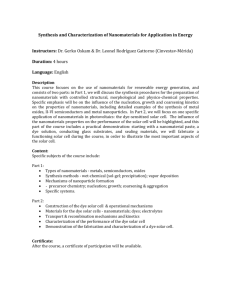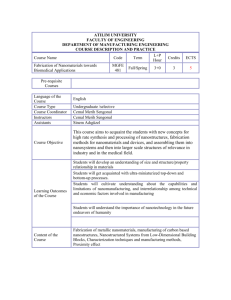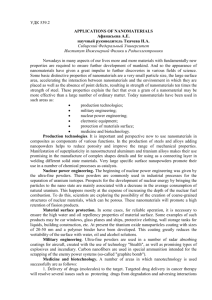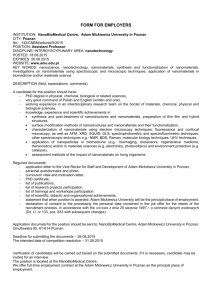Interactions with food crops - University of South Australia
advertisement
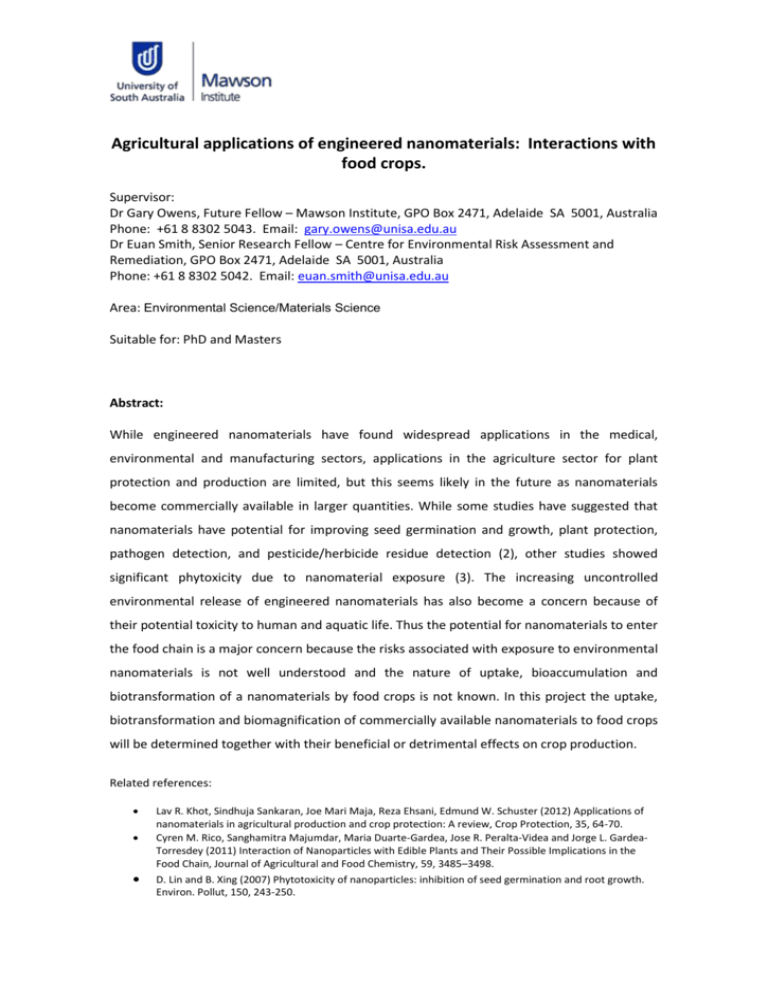
Agricultural applications of engineered nanomaterials: Interactions with food crops. Supervisor: Dr Gary Owens, Future Fellow – Mawson Institute, GPO Box 2471, Adelaide SA 5001, Australia Phone: +61 8 8302 5043. Email: gary.owens@unisa.edu.au Dr Euan Smith, Senior Research Fellow – Centre for Environmental Risk Assessment and Remediation, GPO Box 2471, Adelaide SA 5001, Australia Phone: +61 8 8302 5042. Email: euan.smith@unisa.edu.au Area: Environmental Science/Materials Science Suitable for: PhD and Masters Abstract: While engineered nanomaterials have found widespread applications in the medical, environmental and manufacturing sectors, applications in the agriculture sector for plant protection and production are limited, but this seems likely in the future as nanomaterials become commercially available in larger quantities. While some studies have suggested that nanomaterials have potential for improving seed germination and growth, plant protection, pathogen detection, and pesticide/herbicide residue detection (2), other studies showed significant phytoxicity due to nanomaterial exposure (3). The increasing uncontrolled environmental release of engineered nanomaterials has also become a concern because of their potential toxicity to human and aquatic life. Thus the potential for nanomaterials to enter the food chain is a major concern because the risks associated with exposure to environmental nanomaterials is not well understood and the nature of uptake, bioaccumulation and biotransformation of a nanomaterials by food crops is not known. In this project the uptake, biotransformation and biomagnification of commercially available nanomaterials to food crops will be determined together with their beneficial or detrimental effects on crop production. Related references: Lav R. Khot, Sindhuja Sankaran, Joe Mari Maja, Reza Ehsani, Edmund W. Schuster (2012) Applications of nanomaterials in agricultural production and crop protection: A review, Crop Protection, 35, 64-70. Cyren M. Rico, Sanghamitra Majumdar, Maria Duarte-Gardea, Jose R. Peralta-Videa and Jorge L. GardeaTorresdey (2011) Interaction of Nanoparticles with Edible Plants and Their Possible Implications in the Food Chain, Journal of Agricultural and Food Chemistry, 59, 3485–3498. D. Lin and B. Xing (2007) Phytotoxicity of nanoparticles: inhibition of seed germination and root growth. Environ. Pollut, 150, 243-250. About Adelaide: Adelaide is the capital of South Australia and offers a very high standard of living (top 6 in the world according to “The Economist”), with great climate, food, wine, beautiful unspoiled nature and beach environments, in an inexpensive setting. The Mawson Institute (MI) has recently been established at the University of South Australia, with strong support from the South Australian Government to research new manufacturing technologies. Manufacturing is an important and substantial part of South Australia’s economic base. The MI promotes a strategy based upon strong basic and applied research that encourages scientific and technological innovation within the manufacturing sector. Fundamental to this is the Institute’s multidisciplinary approach, building research teams in concentrations that encompass a diverse range of disciplines, and collaboration with partners from both academia and industry. The institute is based in two new state-of-the-art buildings with outstanding research facilities (see photo of the MM building). For more information on this project please contact the supervisor.
